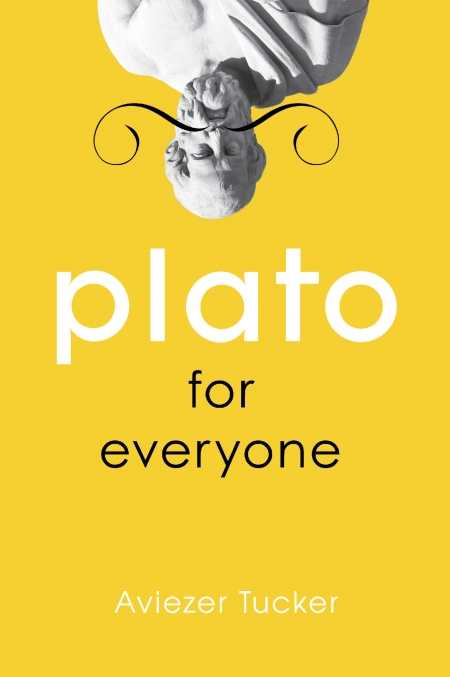Plato for Everyone
For those who aren’t steeped in philosophical study, the type of questions posed by a major philosopher like Plato can seem difficult to grasp without a knowledgeable guide. Fortunately, former professor Aviezer Tucker, author of Our Knowledge of the Past: A Philosophy of Historiography, offers excellent navigation through the most thorny of arguments.
Tucker takes five of Plato’s best-known dialogues and rewrites them as short stories, with contemporary settings and characters. Not only does this help to remove some of the challenges that come up with ancient cultural references in the original works, but the strategy also provides some entertaining storytelling as well.
For example, Plato’s “Euthyphro,” an early dialogue meant to spark discussion about the definition of piety, is recast as a story about a televangelist who plans to disown his son for having a girlfriend.
The classic “Apology,” which gives Socrates’s defense speech at his trial, is told in a universal way that could be applied to any situation in which someone must fight for justice. Here, it’s put in the context of a high school teacher fighting against suspension after three parents accuse him of trying to corrupt their children. Addressing the school board, the teacher delivers a speech of memorable eloquence mixed with humility that references school plays, evil, and the nature of good.
Although he includes numerous colorful characters, at the center of every story is Socrates, much as he was in the original works. Tucker plays with his persona somewhat, but still manages to let Socrates stand in for the reader in the same way that Plato intended.
Best of all, through his lively use of language, realistic dialogue, and contemporary situations, Tucker brings Plato’s subversive, humorous, and intellectually stimulating arguments to a wider audience. “Lost in translation, readers often miss much of what the ancient readers would have found poignantly relevant,” he writes. With such a fresh approach, Tucker creates an ancient-to-modern translation kit that will be valued by anyone who’s interested in diving into Plato’s provocative dialogues.
By supplying a strong dose of philosophy with a spoonful of sugar via storytelling, Tucker delivers a valuable, thought-provoking work of philosophy that’s fun to read and, even more importantly, makes Plato’s philosophy accessible to everyone.
Reviewed by
Elizabeth Millard
Disclosure: This article is not an endorsement, but a review. The publisher of this book provided free copies of the book to have their book reviewed by a professional reviewer. No fee was paid by the publisher for this review. Foreword Reviews only recommends books that we love. Foreword Magazine, Inc. is disclosing this in accordance with the Federal Trade Commission’s 16 CFR, Part 255.


